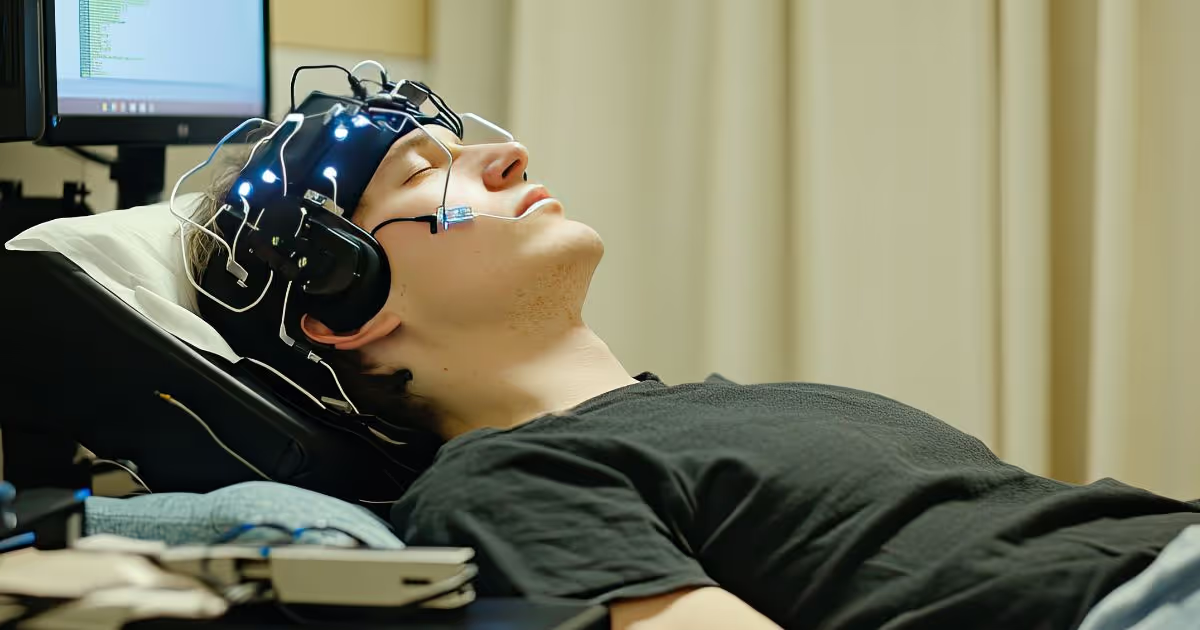TMS for Migraine: Relieve Pain Without the Need for Medication
A migraine is not just an ordinary headache. It is a complex neurological disorder that affects the quality of life of millions of people worldwide. Migraine attacks are often intense and debilitating, requiring rest or medical intervention to relieve the pain. For some individuals, medications may be ineffective, while others may be unable to take them due to certain restrictions. So, how can we manage this overwhelming pain? One promising solution is TMS or Transcranial Magnetic Stimulation.
Understanding Migraine
Migraine is a common condition, affecting approximately 10% of the population. While medical science continues to explore its underlying causes, one of the most widely supported mechanisms is known as Cortical Spreading Depression (CSD), a phenomenon triggered by chemical abnormalities in the brain. CGRP (Calcitonin Gene-Related Peptide) is released, propagating a wave of pain across the brain at a speed of approximately 3–6 millimeters per minute. The release of CGRP typically originates from the posterior region of the brain, which may explain why some individuals with migraines experience visual aura, such as visual disturbances, shimmering lights, or partial loss of vision.
TMS: Magnetic Brain Stimulation for Migraine Relief
There are various treatment options available for migraines, with medication being the mainstay approach. However, for patients who cannot tolerate medication or do not respond to it, TMS has emerged as a promising and effective alternative.
TMS is a non-invasive technique that uses electromagnetic waves to stimulate targeted areas of the brain. Scientific evidence supports its efficacy in managing migraines by relieving pain, reducing the intensity and frequency of attacks, and even helping to prevent future episodes.
The mechanism involves using electromagnetic pulses to interrupt the pain signals in the brain. The treatment targets the back of the head, which is the area believed to be the origin of the migrainous pain.

Is TMS Suitable for You? Who Should Consider This Treatment?
TMS is a medication-free option, making it ideal for individuals who prefer to avoid frequent dependence on migraine medications, those who have not responded well to medications, or those who experience significant side effects from drug treatments, especially those who have limitations taking certain medications.
The benefits of TMS include immediate pain relief during an attack, reduction in pain severity, and overall improvement in symptoms—all without relying on medication.
Are There Any Side Effects of TMS?
TMS may cause some mild side effects. Commonly reported symptoms include dizziness, muscle twitching in the scalp, and facial muscle spasms. However, these effects are generally temporary and resolved on their own.
In certain patients with pre-existing brain lesions, more serious complications, such as seizures, may occur. For these vulnerable individuals, doctors conduct a thorough assessment to evaluate the risk of seizures before deciding whether TMS is an appropriate treatment option.
Contraindications for TMS Treatment
It is crucial to exercise caution and avoid TMS treatment in some vulnerable groups. These include patients with epilepsy, those with implanted pacemakers, and patients who have metal implants or electronic devices in the neck or head area. Patients in these groups should consult their doctor before undergoing TMS, as the magnetic waves can interfere with the function of these devices or cause them to malfunction.
How Many TMS Sessions Are Needed to See Results?
The therapeutic effects of TMS treatment are categorizable into two primary types:
- Immediate pain relief: Used in patients presenting with severe headache pain, it can lessen the intensity of pain by approximately 50 percent or more during the session.
- Preventive treatment: Used prophylactically as an alternative to medication to manage and prevent future migraine attacks. It requires ongoing and regular treatment sessions for sustained benefits.

For those who have suffered from migraine for a long time and have not found relief with medication but are interested in exploring new treatment options such as TMS, please consult with our neurologists at the Neurology Clinic, MedPark Hospital.



